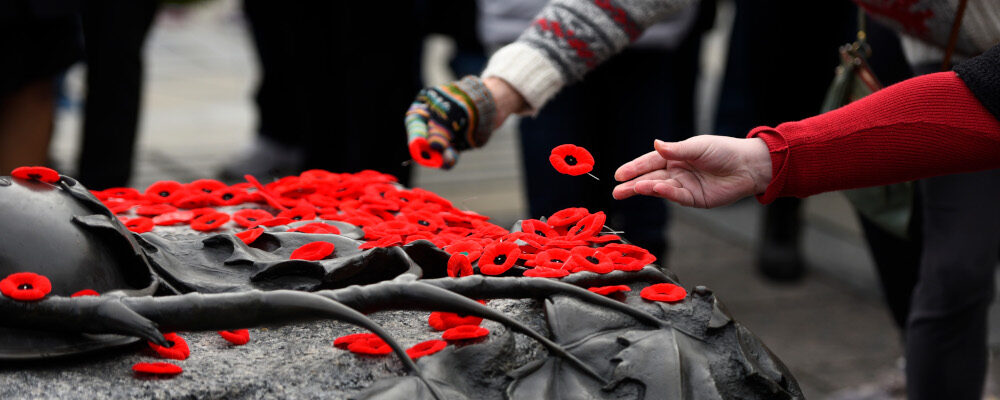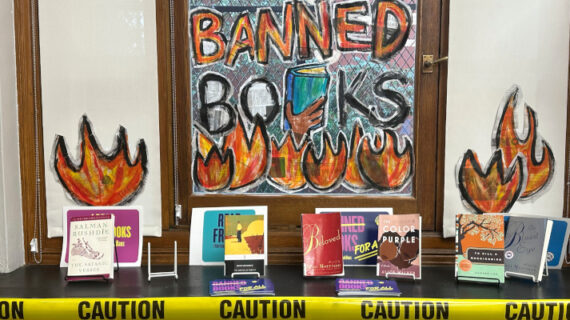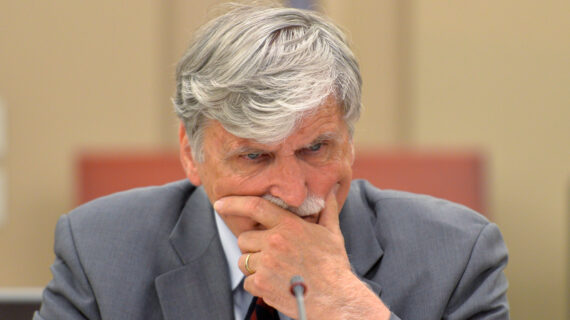A number of years ago I had this idea for a novel about the last living survivor of the Holocaust. He’d be a 100-year-old man born in Poland in 1939 which means the novel had to be set in the near future. In 2039. And that’s what I did. It was called The Last Witness, but the kicker is that in the year 2039 people are so ignorant of past history that they know little or nothing about the Holocaust.
I didn’t go about this blindly. I wanted to learn first-hand about the experiences of child survivors and got involved with a group of them at the Baycrest Centre in Toronto. One of the women I met just happened to be in a famous photo of children who were liberated by the Red Army at Auschwitz in January 1945. In the photo she was nine years old.
Over the years I have read a great deal about World War II, Nazi Germany, and the Holocaust. Probably the most notable book was Rise and Fall of the Third Reich by William Shirer, a 1,500-page panoramic history of Hitler and the Nazis which I went through at least three times. But I only began to write my novel after reading Sir Martin Gilbert’s The Holocaust.
Gilbert, who passed away in 2015, was not only the official biographer of Winston Churchill but an eminent British scholar widely considered to be the world’s foremost historian of what happened to European Jewry in the 1940s. Indeed, you don’t get knighted by the Queen for plagiarizing the work of others. I even met the man, and not once but twice.
The first time he was teaching at the University of Western Ontario (now called Western University) in London, Ontario and I took advantage. I attended his lecture and then asked if we might go for a coffee. And we did. His wife also joined us. At this meeting I was already well into my novel and told him about the premise which by the way he bought hook, line, and sinker. He even gave me an idea I wound up using. He said to “create” an event prior to 2039 which would further advance the hopeless ignorance of the masses. Presto! The Christian Holocaust of 2029 in which Islamic fundamentalists in Syria wind up killing thousands of Christians.
Fast forward to a writers’ conference in New York where I met a literary agent from California. He read the manuscript and signed me up but after a year of rejections from mainstream publishers he wound up publishing it himself through an imprint he ran. One publisher who turned it down did so because their senior editor didn’t buy my concept about people knowing so little about the Holocaust in the not-too-distant future. And so I made a video.
A videographer and I did the proverbial man-on-the-street (today it would be gender-free individual-on-the-street) interviews with university students at a Canadian institution that would go unnamed. I asked them questions not only about the Holocaust, but World War II, the Allies, D-Day, what have you. The upshot of all this was that most of them knew next to nothing. How many Jews perished in the Holocaust? No idea. When did it take place? Nope. You ever heard of Mengele? Who? How about the Final Solution? What’s that? They didn’t even know who FDR and the aforementioned Churchill were, and if I asked them to rhyme off the names of the Allied nations I might get responses like “Germany and Russia.”
For me none of this was surprising. I had spent years as an instructor at Humber College, Seneca at York, and other post-secondary educational institutions and was aware that young people know virtually nothing about history. And there are reasons for this state of affairs. Yes, I realize there is only so much time in the day, and the young—Millennials, the X, Y, and Z generations, and even generations that don’t yet have a letter of identity ascribed to them—are busy with lots to do and all that. But the number one reason they are so ignorant of the past is that our school system has largely abandoned the teaching of history, not to mention other things like geography and grammar, but those are subjects for other articles.
Well, my video ran just under nine minutes and went viral. When I last checked it had been downloaded 100,000 times all over the world. Organizers for a major conference about the Holocaust that would take place in Poland showed it to kick things off on the first day. Yad Vashem, the centre of Holocaust education in Jerusalem, put it in their film library. I have had writer friends with many books to their name who themselves initially questioned my idea about people knowing so little about the Holocaust who were absolutely shocked when they saw the video.
It is a sorry state we’re in when one can read about a young person who dresses up as a Nazi at a Halloween party and fails to see anything wrong with it. I seem to recall that Prince Harry (is he still a prince?) did something like this when he was a teenager.
It is a sorry state we’re in when someone with a Master’s degree no less can run for a major political party in a federal election in this country and post jokes about Auschwitz and they too don’t see anything wrong with it.
It is a sorry state we’re in when a pathetically large segment of the population questions the veracity of the Holocaust in the year 2022, and I won’t bore you with countless surveys by the likes of the Gallup organization among others that bear this out.
The situation with young people and what they know of history is pathetic and even more than that it’s dangerous. Dangerous because we can all take the prescient wisdom of George Santayana1This statement has also been attributed to Edmund Burke and others. who said that those who don’t know history are doomed to repeat it.
The eminent military scholar and historian J. L. Granatstein is a contributor to The Hub. His book Who Killed Canadian History? was first published in 1998 and I can only imagine things have worsened since then. But this is what Granatstein said about history and the young at that time:
Most young people cannot place important global historical figures such as Winston Churchill or Franklin Roosevelt. Hitler is all but unknown, and Stalin and Mao Zedong are names they may have heard once or twice. Few are able to give the dates of the First or Second World War, or the combatants, or even which side we were on. And beyond this century, their ignorance is complete. In effect, most students are culturally illiterate about everything beyond their generation’s immediate experience.
Which brings me to today. November 11th. Remembrance Day. No doubt there are countless young people wearing poppies because they know they are supposed to wear them so they don’t forget. But how do you forget something you never learned in the first place? Unfortunately, many of them haven’t the foggiest clue what those poppies are all about and that is very sad.
If I were a soldier today I would take whoever it is who puts the school curriculum together and sit them in a chair. Then I would show my video and ask them to account for themselves. In fact, I would take the entire group of these people from every province and territory in this country, and let’s include every elected minister of education in Canada as well, and wait to see what they have to say. I wouldn’t be alone. I would be waiting along with our war dead, not to mention their surviving family members, and that goes for all those who perished in the Great War, the Korean War, Afghanistan, and World War II.
“Do you know what happened at Normandy on D-Day?” It was a question I asked in my video of two first-year university students, graduates of the Ontario high school system which we all support with our taxes.
“No,” they said.
Lest we forget, indeed.




